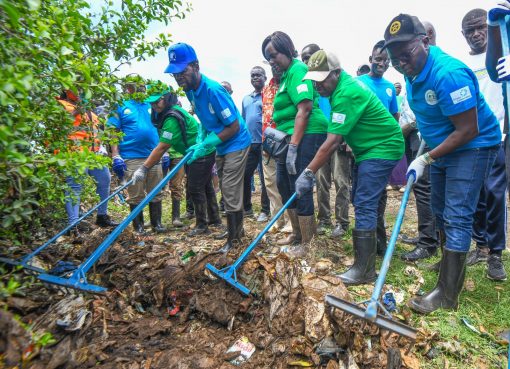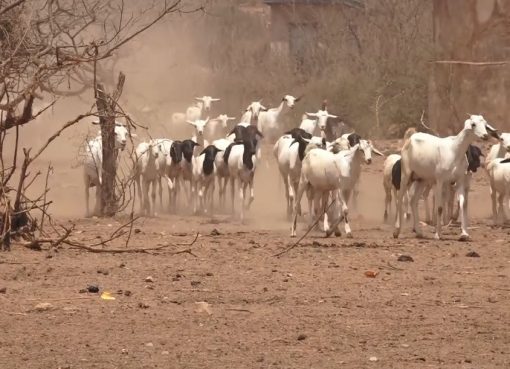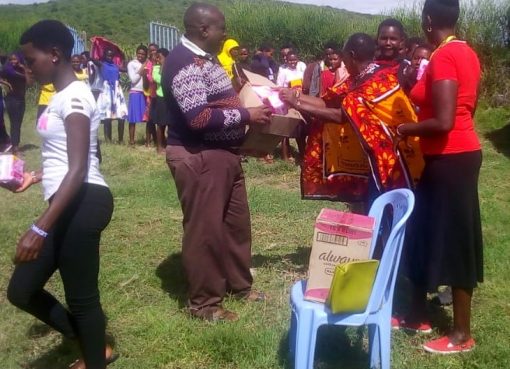West Pokot Governor Simon Kachapin has distributed over 1401 hybrid Galla goats to over 2200 farmers in 79 farmers’ common interest groups (CIGs) to help improve their breeds and mitigate the effects of climate change through farming diversification measures.
The galla goats were purchased through the Kenya Climate Smart Agriculture Project (KCSAP) in partnership with the county government of West Pokot.
Speaking at Nasukuta abattoir in Chepareria ward, West Pokot governor Simon Kachapin noted they have distributed the goats to farmers to help them improve their local breeds for more income in the competitive livestock market.
Governor Kachapin said the goats were distributed to over 2200 farmers in 79 common interest groups in Lomut, Alale, Sook, Sekker, and Endugh wards.
“It is one way of changing the local breeds to hybrid ones; the local breeds have low meat and milk quality compared to improved breeds, and there is a need for farmers to rear the breeds that would earn them more meat, milk, and income,” governor Kachapin noted.
He claimed that through the Kenya Climate Smart Agriculture Project, the residents have really benefited from the programs that have helped build resilience to climate change risks and provide an immediate and effective response in emergency situations.
He thanked the World Bank for their continued support and partnership in matters of development.
Kachapin noted that his administration would ensure that all projects undertaken by the county were transparent and accountable to stakeholders.
KCSAP coordinator Philip Ting’aa disclosed that they were promoting galla goat farming because of their resilience during dry spells, unlike the local breeds.
Ting’aa further disclosed that galla goats grow faster and have a bigger bosom compared to the local small East African goats.
He went on: “The big bodies of galla goats attract high prices in the market compared to the local breeds.”
He said farmers’ common interest groups requisitioned more galla bucks for crossbreeding to enable them to upgrade their local breeds.
Ting’aa warned the farmers against selling or slaughtering the galla goats donated, saying they were meant for breeding purposes.
He encouraged farmers to try their fortune in climate-smart agriculture activities in order to win the fight against hunger, poverty, and malnutrition.
He said the goats were sourced from farmers who breed them in Laikipia County, and they were vaccinated against diseases before they were donated to farmers for breeding.
Peter Tepakwang, a beneficiary, thanked the county government and the World Bank for the hybrid goat gift saying it will improve his life because they mature faster and can fetch good prices than local breeds.
Philip Domoreng, another beneficiary from Lomut ward, says they will use the galla bucks to crossbreed the local breeds.
Domoreng added that because galla goats grow faster and have larger bodies than local breeds they currently have, they would benefit them a lot in terms of meat and milk.
By Anthony Melly





